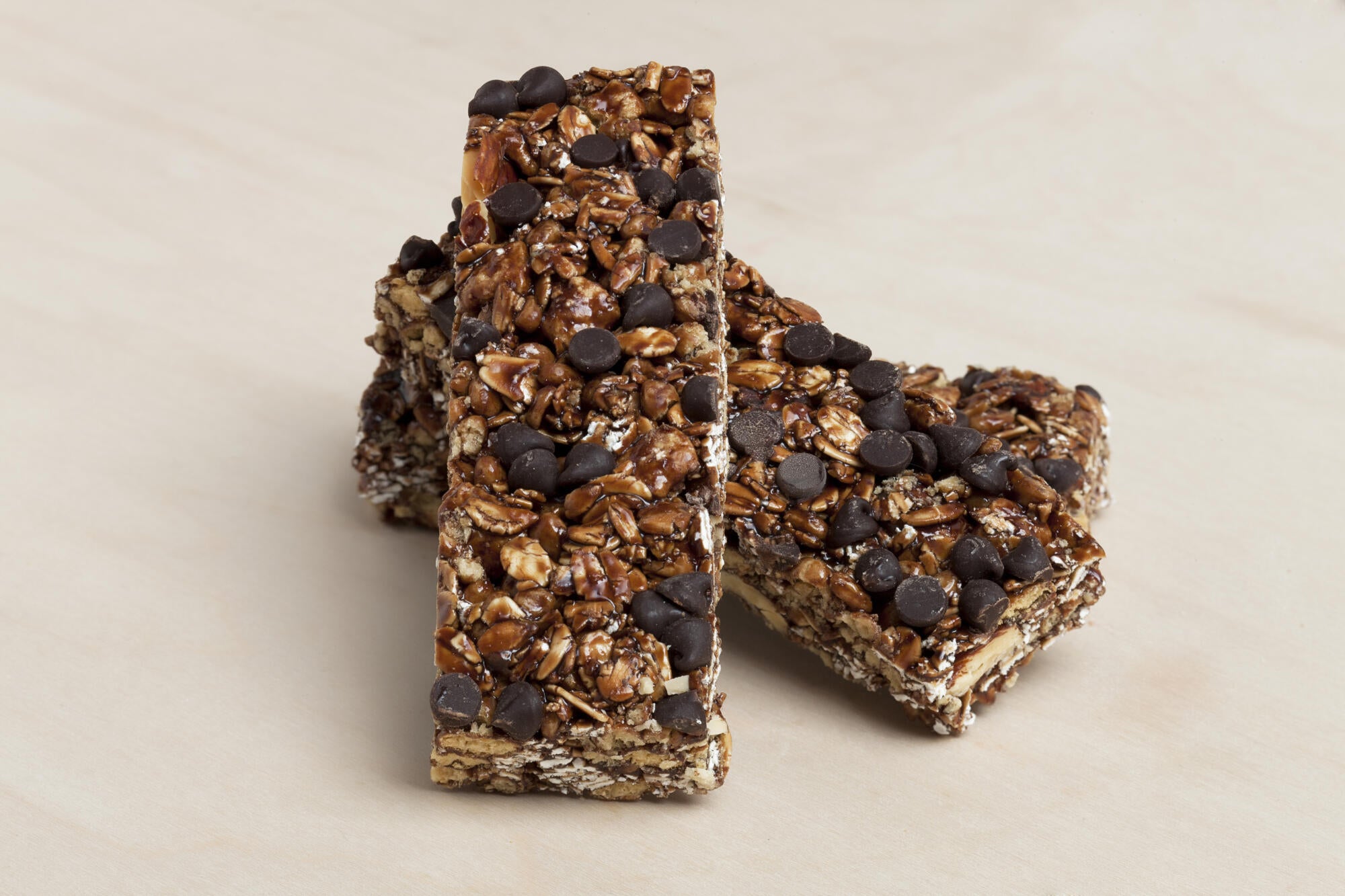For athletes, regular exercise may increase their protein needs by 50 to 100%. A recent study found that most athletes struggle to meet their daily protein needs. Protein is the building block of muscle, and for athletes, it's crucial for recovery and performance.
But between juggling workouts, work, and life, grabbing a convenient protein bar can be a lifesaver. What's the problem here? With endless options lining store shelves, finding the best protein bars feels like navigating a protein jungle.
Fear not, fellow athletes! This guide will be your compass it'll help you choose the right protein bar for your workout goals, and ultimately, fuel your fitness journey. Learn more!
What Are Protein Bars? Do You Actually Need Them?
Protein bars are a convenient and nutritious way for athletes to boost their protein intake, supporting muscle recovery and growth. These bars come in various types, including whey, plant-based, and more. When choosing the protein bars, it's essential to consider a balanced healthy diet.
This includes a mix of several macronutrients. High protein bars, in particular, are designed to provide a substantial protein boost. This is vital for athletes seeking to optimize their muscle growth and recovery.
Additionally, protein bars can aid in muscle recovery by replenishing glycogen stores. This reduces muscle soreness and provides essential vitamins and minerals. They also offer a convenient and portable way to consume protein.
This makes them an ideal choice for athletes with busy lifestyles. By incorporating high-protein bars into their diet, athletes can ensure they meet their daily protein requirements.
What Are the Key Factors to Consider When Choosing Protein Bars
When selecting protein bars to support your athletic endeavors, several key factors must be considered. Understanding this ensures you're fueling your body with the right nutrients. Here are the essential factors to consider:
Protein Content
High protein content is crucial for athletes, as it supports muscle repair, growth, and recovery. Look for protein bars with at least 15g of protein per serving. This ensures you're meeting your daily protein needs.
This is particularly important for athletes who engage in intense or prolonged physical activities. Since they require adequate protein to maintain muscle mass and support their performance.
Sugar Content
Sugar can have a significant impact on energy levels and performance. Opt for protein bars with minimal added sugar, ideally less than 5g per serving. This will not only help manage blood sugar levels but also ensure you're not consuming excessive calories that can hinder your athletic goals.
Ingredients
It's essential to pay attention to the ingredients. Look for whole food sources like egg whites, grass-fed meat, or whey protein isolate. Avoid bars with artificial sweeteners, preservatives, or excessive amounts of sugar.
Moreover, consider the protein blend used, ensuring it includes a mix of different protein sources for optimal amino acid profiles.
Calorie Count
Balancing protein intake with overall calorie needs is vital for athletes. Ensure the protein bars you choose to align with your daily calorie requirements. If you're trying to lose weight, opt for lower-calorie bars.
For those seeking to gain muscle mass, higher-calorie bars with a balanced macronutrient profile can be beneficial.
How to Incorporate Protein Bars Into Your Fitness Routine
Incorporating protein bars into your fitness routine can be a game-changer in supporting your athletic goals. Here's how to make the most of these convenient and nutritious options:
Pre-Workout Pump
For a pre-workout boost, opt for protein bars with easily digestible protein sources. This includes whey or ideally plant-based options. These bars should also contain simple carbohydrates like fructose or glucose for a quick energy hit.
This combination helps fuel your workout and supports muscle function during exercise. Look for bars with a balanced ratio of protein to carbohydrates, preferably around 2:1 or 3:1. Examples of such bars include those combined with peanut butter, apple sauce, and mixed spice for a taste and nutrition boost.
Post-Workout Recovery
After a workout, your body needs a protein-rich snack to support muscle repair and growth. Choose protein bars with a higher protein content, typically above 20 grams. It should also contain complex carbohydrates like whole grains or fiber-rich ingredients.
These bars help replenish glycogen stores and provide essential amino acids for muscle recovery. For example, chocolate fudge bars offer a convenient and satisfying post-workout snack.
Sustained Energy Bars
For long-distance activities or endurance exercises, you need a protein bar that provides sustained energy. Look for bars with a balanced ratio of protein, carbohydrates, and healthy fats. These bars should contain complex carbohydrates like oats or brown rice, and healthy fats like nuts or seeds.
Snack Options
Protein bars can be a convenient and nutritious on-the-go snack. Keep a stash of high-protein bars in your gym bag, office, or car to have a quick and satisfying option when hunger strikes. It also helps you maintain energy levels and avoid unhealthy cravings.
This combination helps maintain energy levels and supports muscle function during prolonged exercise.
Dietary Restrictions: Finding Your Perfect Fit
When it comes to finding protein bars to support your athletic goals, dietary restrictions can play a big role. Let's explore how to navigate these considerations:
Vegetarian/Vegan Athletes
For those following a plant-based diet, finding protein bars with complete protein sources is crucial. Look for bars that feature a blend of plant-based proteins, such as pea, brown rice, or soy. This ensures you're getting all the essential amino acids your body needs.
Go for brands that offer high-protein, vegan-friendly options that can help vegetarian and vegan athletes meet their daily protein requirements.
Gluten-Free Options
Athletes with celiac disease or gluten sensitivity can still enjoy the benefits of protein bars. Opt for gluten-free options that use alternative grains like oats, quinoa, or buckwheat.
Dairy-Free Considerations
For those with lactose intolerance or a preference for dairy-free options, protein bars made with soy, pea, or almond protein can be excellent choices. These alternative protein sources provide the same muscle-building benefits without dairy.
Nutrition and Ingredients in Protein Bars
A well-balanced protein bar should provide a mix of protein, carbohydrates, fats, fiber, and essential vitamins and minerals. Here's a breakdown of common ingredients and their benefits
- Protein Bars: Aim for a mix of protein, carbs, fats, fiber, vitamins & minerals
- Protein Sources: Whey, casein, pea, soy -- build & repair muscle
- Carbs: Simple & complex -- energy & keep you full
- Fats: Healthy fats (nuts, seeds) for heart health, avoid unhealthy fats (palm oil)
- Fiber: Keeps you full & supports digestion (soluble & insoluble)
When reading nutrition labels, look for protein bars with these recommendations.
What Are the Potential Drawbacks and Precautions of Protein Bars?
Protein bars can be a champion for busy athletes, but like any champ, they have a game plan. Don't get tricked by sugary imposters! Here's the lowdown:
Sugar Rush
Some bars pack more sugar than a candy bar. This can spike your energy, then leave you crashing. Look for bars low in added sugars.
Calorie Overload
Not all protein bars are created equal. Check the calorie count -- some can be meal replacements! Choose bars that fit your needs.
Allergy Alert
Know your allergies! Peanuts, soy, and other ingredients can be hidden in bars. Read labels carefully to avoid surprises.
Remember, protein bars are a tool, not a magic bullet. Use them alongside a balanced diet with whole foods for optimal performance.
FAQs About Protein Bars for Athletes
Thinking about incorporating protein bars into your training routine? Here's a breakdown of what you need to know to make informed choices.
Do I Need to Consume Protein Bars If I'm Already Getting Enough Protein From My Diet?
Not necessarily. Protein bars can be a convenient supplement, but they should not replace whole food sources of protein in a balanced diet.
Are All Protein Bars Created Equal?
Not. There is a wide range of quality and nutritional profiles among protein bars.
Can Protein Bars Be Used as a Meal Replacement?
Protein bars can be a convenient meal replacement option, but they should not be the sole source of nutrition in your high-protein diet.
How Much Protein Do Athletes Typically Need?
Protein needs vary depending on factors like sport, activity level, and bodyweight. Generally, athletes need 0.8-1 gram of protein per pound of bodyweight per day.
Are There Any Alternatives to Protein Bars?
Yes, but they may not be as effective! Greek yogurt with fruit and nuts, cottage cheese with berries, or homemade protein smoothies are all excellent options for post-workout recovery or a protein-rich snack.
Fuel Your Athletic Abilities With The Best Protein Bars
Remember, the perfect protein bar for you may differ from your fellow athletes. So don't be afraid to experiment and find what works best for your diet and overall fitness goals.
Proper nutrition is the foundation of athletic performance, and the best protein bars can be a valuable tool in your arsenal. Incorporate them strategically into your fitness routine and watch as your energy, recovery, and muscle growth soar.
For a wide selection of high-quality tasty protein bars, visit us at DietOnSale.com and confidently fuel your fitness journey. Free shipping for orders above $89.




Leave a comment
This site is protected by hCaptcha and the hCaptcha Privacy Policy and Terms of Service apply.